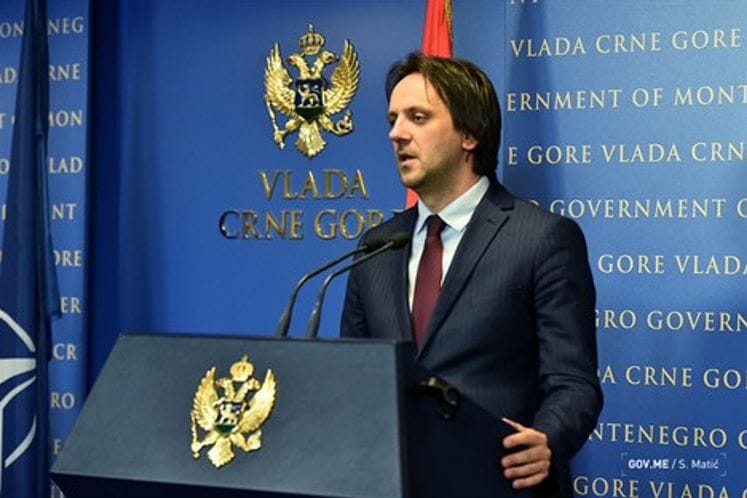- Government of Montenegro
Government proposes new legal solutions for rapid ...
Government proposes new legal solutions for rapid and increasingly efficient dispute resolution

At today’s Cabinet session, at the proposal of the Ministry of Justice, the Government passed the Draft Law on Alternative Dispute Resolution. This Law will provide Montenegro’s citizens and the economy significantly accelerated and cheaper access to justice, through further encouragement and improvement of the system of extra - judicial dispute resolution, Deputy Minister for Civil Legislation and Supervision at the Ministry of Justice Ibrahim Smailović stated after the Cabinet's session.
New Law will provide citizens and the economy numerous new possibilities to resolve disputes quickly and efficiently without instituting the legal proceedings, which will provide greater legal certainty for citizens and better business environment in Montenegro.
In order to resolve disputes as efficiently and effectively, the Law foresees the obligation of the parties to contact the mediator in a certain type of dispute, before attempting a court procedure, to try to resolve the dispute through mediation, while, on the other hand, it is also prescribed the obligation of the court in a certain type of disputes to necessarily refer the parties to a first meeting with a mediator in order to resolve the dispute through mediation.
The Government has proposed a mediation to be free in family - law disputes and disputes against the country and local authorities. This solution is significantly important for the citizens, since a large number of disputes that are currently taking place before the courts are precisely in the area of family legal relations, i.e. claims from work and on the basis of work.
In addition to the mediation as the basic and leading method of extra – judicial dispute resolution, this Law introduces for the first time the possibility of resolving disputes through the early neutral dispute assessment. So, after the entry into force of this Law, the parties will be able to contact an independent evaluator, who is tasked with reviewing the evidences and statements of parties and giving the parties a reasoned neutral assessment of the factual and legal elements of their disputed relation. On the basis of such neutral dispute assessment, the parties can decide to conclude a settlement before an independent evaluator and thereby resolve the dispute without being exposed to the other possible lengthy and costly court procedures.
In addition, after the entry into force of this Law, citizens and business people will not have to wait for court decisions in order to collect their claims, but they will be able to forcefully collect all of their claims that are determined in the procedure of mediation. This was provided by introducing the provisions that a settlement concluded in the mediation proceedings has the character of an executive document, thereby equating to a settlement concluded before the court.
Thus, with such legal provisions citizens will be quicker to reach the solutions to their disputes without exposure to unnecessary costs, by which their right to access to justice further improves. Finally, in accordance with good work experience and tradition in work, the Centre for mediation continues to operate as Centre for alternative dispute resolution, which will carry out professional activities, relating to mediation, early neutral assessment of dispute and other ways of extra – judicial dispute resolution and the jobs of improving the availability of extra – judicial dispute resolving.
At today’s Cabinet session, the Government also adopted proposals for the Draft Law amending to the Law on Civil Procedure and the Draft Law amanding to the Family Law in order to compliance with the Law on Alternative Dispute Resolution which will create all necessary conditions for their smooth implementation after this Law enters into force.
PUBLIC RELATIONS SERVICE OF THE GOVERNMENT OF MONTENEGRO
